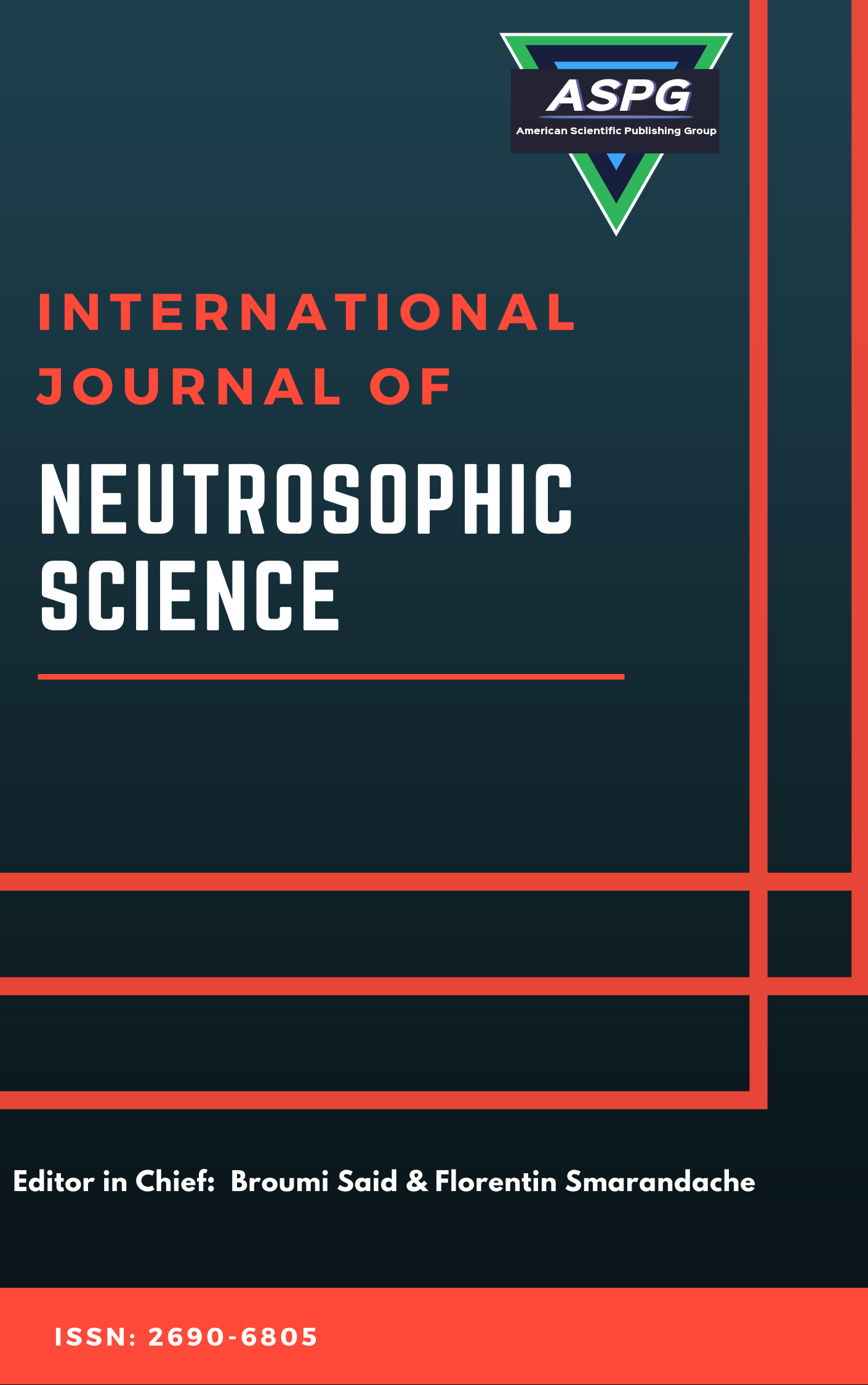

Volume 23 , Issue 3 , PP: 245-261, 2024 | Cite this article as | XML | Html | PDF | Full Length Article
Firuz Kamalov 1 * , Said Elnaffar 2 , Ikhlaas Gurrib 3 , Aswani Cherukuri 4
Doi: https://doi.org/10.54216/IJNS.230321
Regression analysis is a widely used tool in several fields. In this paper, we propose a comprehensive, multistep regression model for financial forecasting. The proposed hybrid model combines preprocessing, feature selection, and cross-validation to obtain a powerful approach to forecasting. The extension of the proposed model to neutrosophic sets is discussed. The model is applied to the case study of real estate prices. The results demonstrate the efficacy of the model.
regression analysis , feature selection , preprocessing , financial forecasting , hybrid model , neutrosophic set
[1] Arkes, J. (2023). Regression analysis: a practical introduction. Taylor & Francis.
[2] Gunst, R. F., & Mason, R. L. (2018). Regression analysis and its application: a data-oriented approach. CRC Press.
[3] Lawrence, K. D. (2019). Robust regression: analysis and applications. Routledge.
[4] Sarstedt, M., Mooi, E., Sarstedt, M., & Mooi, E. (2019). Regression analysis. A concise guide to market research: The process, data, and methods using IBM SPSS Statistics, 209-256.
[5] Kamalov, F. (2020). Forecasting significant stock price changes using neural networks. Neural Computing and Applications, 32, 17655-17667.
[6] Kamalov, F., Smail, L., & Gurrib, I. (2020, December). Forecasting with deep learning: S&P 500 index. In 2020 13th International Symposium on Computational Intelligence and Design (ISCID) (pp. 422-425). IEEE.
[7] Lathuili`ere, S., Mesejo, P., Alameda-Pineda, X., & Horaud, R. (2019). A comprehensive analysis of deep regression. IEEE transactions on pattern analysis and machine intelligence, 42(9), 2065-2081.
[8] Rajabi, S., Roozkhosh, P., & Farimani, N. M. (2022). MLP-based Learnable Window Size for Bitcoin price prediction. Applied Soft Computing, 129, 109584.
[9] Chachi, J., Taheri, S. M., & D’Urso, P. (2022). Fuzzy regression analysis based on M-estimates. Expert Systems with Applications, 187, 115891.
[10] Chukhrova, N., & Johannssen, A. (2019). Fuzzy regression analysis: systematic review and bibliography. Applied Soft Computing, 84, 105708.
[11] Nagarajan, D., Broumi, S., Smarandache, F., & Kavikumar, J. (2021). Analysis of neutrosophic multiple regression. Neutrosophic Sets and Systems, 43, 44-53.
[12] Omar, R. H., Kayali, M. N., & Zeina, M. B. (2023). Neutrosophic Multinominal Logistic Regression Technique for Optimizing Adaptive Reuse of Historical Castles. International Journal of Neutrosophic Science, 21(3), 56-6.
[13] Chicco, D., Warrens, M. J., & Jurman, G. (2021). The coefficient of determination R-squared is more informative than SMAPE, MAE, MAPE, MSE and RMSE in regression analysis evaluation. PeerJ Computer Science, 7, e623.
[14] Abadie, A., Athey, S., Imbens, G. W., & Wooldridge, J. M. (2020). Sampling-based versus design-based uncertainty in regression analysis. Econometrica, 88(1), 265-296.
[15] Yao, K., & Liu, B. (2018). Uncertain regression analysis: An approach for imprecise observations. Soft Computing, 22, 5579-5582.
[16] Nizam, R., Karim, Z. A., Rahman, A. A., & Sarmidi, T. (2020). Financial inclusiveness and economic growth: New evidence using a threshold regression analysis. Economic research-Ekonomska istraˇzivanja, 33(1), 1465-1484. Chicago
[17] Pervez, A., & Ali, I. (2022). Robust regression analysis in analyzing financial performance of public sector banks: a case study of India. Annals of Data Science, 1-15.
[18] Gurrib, I., Kamalov, F., Starkova, O., Elshareif, E. E., & Contu, D. (2023). Drivers of the next-minute Bitcoin price using sparse regressions. Studies in Economics and Finance.
[19] Zgheib, R., Chahbandarian, G., Kamalov, F., El Messiry, H., & Al-Gindy, A. (2023). Towards an MLbased semantic IoT for pandemic management: A survey of enabling technologies for COVID-19. Neurocomputing, 528, 160-177.
[20] Ghardallou, W. (2023). The heterogeneous effect of leverage on firm performance: a quantile regression analysis. International Journal of Islamic and Middle Eastern Finance and Management, 16(1), 210-225. Chicago
[21] Budiman, T., Febrian, E., & Azis, Y. (2022). The effect of geographical factors on Islamic banking sustainability performance: an instrumental variable quantile regression analysis. Asian Economic and Financial Review, 12(2), 70-88. lied Soft Computing, 84, 105708.
[22] Abuselidze, G. (2022, July). The Influence of Changes in Oil Prices at the Inflation Levels: A Correlation- Regression Analysis. In International Conference on Computational Science and Its Applications (pp. 45-57). Cham: Springer International Publishing.
[23] Kamalov, F. (2020). A note on the autocovariance of p-series linear process. Gulf Journal of Mathematics, 9(2), 40-45.
[24] Real estate valuation data set. (2018). UCI Machine Learning Repository. https://doi.org/10.24432/C5J30W.
[25] Thabtah, F., Kamalov, F., Hammoud, S., & Shahamiri, S. R. (2020). Least Loss: A simplified filter method for feature selection. Information Sciences, 534, 1-15.
[26] Smarandache, F. (1999). A unifying field in Logics: Neutrosophic Logic. In Philosophy (pp. 1-141). American Research Press.
[27] Ouallane, A. A., Bakali, A., Bahnasse, A., Broumi, S., & Talea, M. (2022). Fusion of engineering insights and emerging trends: Intelligent urban traffic management system. Information Fusion.
[28] Govindan, K., Ramalingam, S., & Broumi, S. (2021). Traffic volume prediction using intuitionistic fuzzy Grey-Markov model. Neural Computing and Applications, 33(19), 12905-12920.